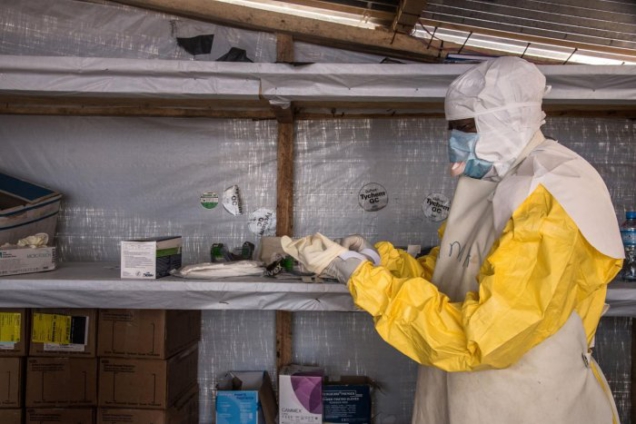The World Health Organisation (WHO) says it has detected a highly infectious and deadly viral disease that has the potential to spread far and wide.
WHO said the first patient identified in Southern Guinea has already died of the disease in a statement.
Marburg virus disease is said to be in the family of the Ebola Virus and has a case fatality rate of up to 88 per cent.
WHO said it has begun cross-border surveillance, with neighbouring countries put on alert.
This is the first time Marburg, a highly infectious disease that causes haemorrhagic fever, has been identified in Guinea and West Africa.
Marburg, which is in the same family as the virus that causes Ebola, was detected less than two months after Guinea declared an end to an Ebola outbreak that erupted earlier this year.
Samples taken from a now-deceased patient and tested by a field laboratory turned out positive for the Marburg virus.
The patient had sought treatment at a local clinic, where a medical investigation team had been dispatched to probe his worsening symptoms.
Gueckedou, where Marburg has been confirmed, is also the same region where cases of the 2021 Ebola outbreak in Guinea and the 2014–2016 West Africa outbreak were initially detected.
Efforts are underway to find the people who may have been in contact with the patient.
An initial team of 10 WHO experts, including epidemiologists and socio-anthropologists, is on the ground helping to investigate the case and supporting the national health authorities to step up emergency response swiftly.
Cross-border surveillance is also being enhanced to detect any cases, with neighbouring countries on alert quickly. In addition, the Ebola control systems in place in Guinea and neighbouring countries are proving crucial to the emergency response to the Marburg virus.
Marburg is transmitted to people from fruit bats and spreads among humans through direct contact with the bodily fluids of infected people, surfaces and materials.
Illness begins abruptly, with high fever, severe headache and malaise. Many patients develop severe haemorrhagic signs within seven days.
Case fatality rates have varied from 24% to 88% in past outbreaks depending on virus strain and case management.
Although there are no vaccines or antiviral treatments approved to treat the virus, supportive care – rehydration with oral or intravenous fluids – and treatment of specific symptoms improves survival.
A range of potential treatments, including blood products, immune therapies and drug therapies, are being evaluated.
Latest Stories
-
EPA says lead-based paints are dangerous to health, calls for safer alternatives
2 hours -
Queenmother calls on President-elect Mahama to appoint more women in his government
4 hours -
Atletico Madrid beat Barcelona to go top of La Liga
4 hours -
Usyk breaks Fury’s heart with points win in rematch
4 hours -
Ghana-Russia Centre to run Russian language courses in Ghana
10 hours -
The Hidden Costs of Hunger: How food insecurity undermines mental and physical health in the U.S.
10 hours -
18plus4NDC marks 3rd anniversary with victory celebration in Accra
13 hours -
CREMA workshop highlights collaborative efforts to sustain Akata Lagoon
13 hours -
2024/25 Ghana League: Heart of Lions remain top with win over Basake Holy Stars
14 hours -
Black Queens: Nora Hauptle shares cryptic WAFCON preparation message amid future uncertainty
14 hours -
Re-declaration of parliamentary results affront to our democracy – Joyce Bawah
15 hours -
GPL 2024/25: Vision FC score late to deny Young Apostles third home win
15 hours -
Enhancing community initiatives for coastal resilience: Insights from Keta Lagoon Complex Ramsar Site Workshop
15 hours -
Family Health University College earns a Presidential Charter
15 hours -
GPL 2024/25: Bibiani GoldStars beat Nsoatreman to keep title race alive
15 hours

